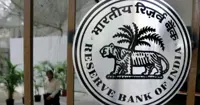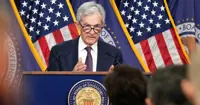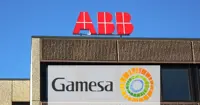Trai raises red flag on India’s crawling broadband speeds
18 Apr 2015
The Telecom Regulatory Authority of India (Trai) has finally raised the red flag on India's frustratingly slow 'broadband' services, suggesting several reforms that the government must take to remedy this problem.
 The semi-autonomous Trai on Friday asked the government to exempt fixed line broadband services from licence fees for at least five years, and suggested a series of measures to expedite the roll out of high speed networks.
The semi-autonomous Trai on Friday asked the government to exempt fixed line broadband services from licence fees for at least five years, and suggested a series of measures to expedite the roll out of high speed networks.
It has also suggested a revamp of the government bodies involved in broadband related works, including converting the Wireless Planning Commission into a statutory body.
Trai chairman Rahul Khullar pointed out that India is ranked below Bhutan and Sri Lanka in broadband penetration, and the multi-layered structure involved in the decision making for the sector needs to be overhauled.
''India ranks 125th in the world for fixed broadband penetration. Some of our neighbours like Bhutan and Sri Lanka are ahead of us. We need to seriously think about it,'' Khullar said at a seminar in Delhi on the subject of 'Delivering Broadband Quickly'.
The regulator also suggested the need to revamp government bodies involved in decision-making that impact the spread of broadband including the Wireless Planning Commission, which is in charge of of spectrum within the Department of Telecommunications.
Trai said WPC should be converted into an independent body by de-linking it from DoT and suggested that it can be converted into a statutory body reporting to Parliament or any other existing statutory body.
The regulator has said that multi-layered structure for decision making on the National Optical Fibre Network (NOFN) is not suitable, and its structure needs immediate overhaul.
The NOFN project aims to spread broadband across 2.5 lakh village panchayats by the end of 2016 but has missed its target of completing roll out in first 50,000 panchayats by March 2015.
Trai has also called for an audit of spectrum held by all the bodies including public sector companies and government organisation to check if it is being used efficiently.
Khullar said the present usage of spectrum available with government agencies should be reviewed, tarting within 6 months, so as to identify the possible areas where spectrum can be reused efficiently.
Trai expressed concern on government delaying guidelines on spectrum trading and sharing saying that ''it is strongly urged that a decision is taken no later than 3 months from now.''
It also recommended that the cable operators should be allowed to function as resellers of internet service provider licence and digitisation of cable services should be implemented in tier II and III cities in a time-bound manner.
While citizens may welcome these much-needed recommendations, the word 'regulatory' in Trai is misleading, as it only has advisory powers – TRAI may propose, but it is the government, and the DoT directly under it, that disposes. So don't expect your broadband to work faster anytime soon – especially because the government is very stingy about parting with spectrum.


.webp)




























